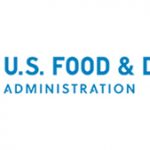The FDA has released the results of a March 2021-January 2022 routine sampling program of ready-to-eat (RTE) refrigerated dips and spreads to test for Listeria monocytogenes and Salmonella spp.
The goal of the testing program—launched as part of the FDA’s risk-based approach to food safety, as outlined in the FDA Food Safety Modernization Act (FSMA)—is to identify common factors or patterns related to the contamination of RTE dips and spreads. The data collected helps the FDA develop guidance and update program priorities, including sampling assignments and the prioritization of surveillance inspections.
Out of the 747 samples, four were detected to have a human pathogen.
Pathogen Findings: Salmonella
The agency detected Salmonella Havana in one hummus sample collected from a retail establishment in Kingsburg, California. The FDA performed Whole Genome Sequencing (WGS) analysis on the organism and determined that it did not match any known human illnesses and was not linked to any other product or environmental samples.
Pathogen Findings: Listeria monocytogenes
The FDA detected Listeria monocytogenes in three dips and spreads samples—two cheese samples, one cheese and pepper sample—collected from a retail establishment in Colorado Springs, Colorado. All three of the samples were produced by the same manufacturer. WGS analysis on the organisms determined they did not match any known human illnesses and were not linked to any other product or environmental samples.
The agency also detected two subspecies (i.e., Listeria welshimeri, Listeria innocua) of non-pathogenic Listeria spp. in three samples—two collected from retail establishments and one from the manufacturer/processor. Since these samples were non-pathogenic, they were not analyzed by WGS.
The agency noted that the findings suggest that Salmonella spp. and L. monocytogenes were not widespread in the multi-commodity RTE dips and spreads collected nationwide, though it cautioned against making inferences more broadly about the contamination or potential for contamination of RTE dips and spreads based solely on this testing assignment’s findings. “The presence of contamination in the samples suggests the risk of contamination still exists. For example, from FY2017 through FY2022, there were a total of 22 recalls of dips and spreads due to potential Salmonella or L. monocytogenes contamination; of these hummus and cheese dips and spreads make up 64% of the recalls (10 hummus recalls, 4 cheese dips and spread recalls),” the agency stated.







